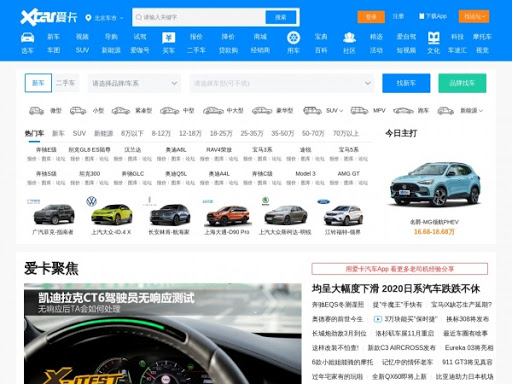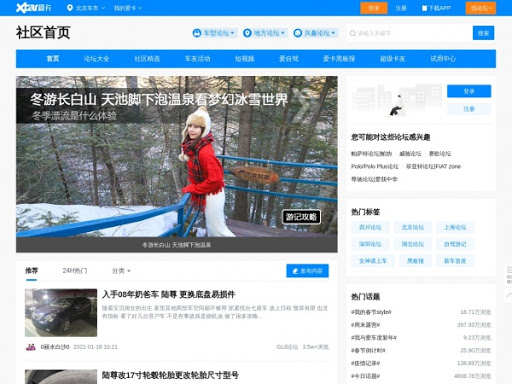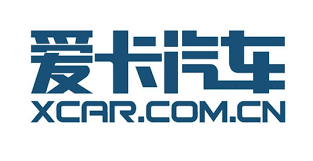2018.11.24 Zhao Na Views:
CoStone Capital started its engagement in buyouts in 2004. After nearly 15 years of practice, it has gradually fashioned its own principles: only invest in familiar fields, tie itself closely to the company’s management team, get highly involved in corporate operations, and obtain more benefits beyond efficiency improvement through industry collaboration.


CoStone Capital started its engagement in buyouts in 2004. After nearly 15 years of practice, it has gradually fashioned its own principles: only invest in familiar fields, tie itself closely to the company’s management team, get highly involved in corporate operations, and obtain more benefits beyond efficiency improvement through industry collaboration.

In 2015, a trillion-level market opportunity appeared in front of CoStone Capital: Columbia Broadcasting System ("CBS") intended to sell its equity in Xcar. At that time, vertical media in the automotive industry had successively landed on the US capital market, and what attracted CoStone was the huge market prospects in the automotive service sector.
CoStone Capital has had its own methods of improving operational efficiency from management perspective. Through in-depth participation in the external acquisitions of companies such as Huachangda (300278), EFORT (688165), and CONBA (600572), and the actual operation of automotive projects of Pharmplus and Excar, CoStone Capital has a deeper understanding of the industry, and more insights into corporate governance and teamwork.
In fact, CoStone Capital dispatched an entire team to support the company's management team in reforming the company's strategy, management structure, business operations, and corporate culture. Now Excar has the “interest-based social platform” and the “auto life-circle service platform” rolled out and is exploring with its partners such as China Grand Auto(600297) more possibilities in a hybrid of online and offline.
Furthermore, Xcar has been focusing on the big trend of consumer structure changes in the automotive aftermarket, using its advantages in community and organizing various online and offline car club events to enhance user stickiness in a way to expand car owners on the one hand and increase the user base in post-90s groups and 4-6 tier cities on the other hand.
With the development of new energy and artificial intelligence, automobiles have been redefined. CoStone Capital has begun to increase investment in areas such as autonomous driving, vehicle financing, secondhand trading, and car maintenance.
Tao Tao said, “The core value created through a buyout is to improve corporate management, accelerate endogenous growth, yield synergies through strategic cooperation or industrial M&As, and ultimately maximize benefits through the capital market.” CoStone benchmarks itself against 3G Capital, a Brazilian-American investment firm. This company started out with the acquisition of a Brazilian beer company and has now become the shareholder of the world's largest brewer.
The exploration on the project has allowed CoStone’s managers to acquire the core skills as entrepreneurs, and the accumulation of experience has become the solid foundation for the team to participate in more buyouts. Only with this foundation can CoStone go further and further on the path of buyout.
Above are the excerpts from 21st Century Business Herald. Access to the source text: http://epaper.21jingji.com/html/2018-11/26/content_97122.htm
Rewritten by Lu Ying; Edited by Li Yunzhen, Du Zhixin
The year 2019 marks the fortieth anniversary of China’s Reform &Opening-Up, once again, we meet at the turning point of history. What’s the next step for the game, is there any clear guidance? The answer is affirmative.
Our country is enjoying a good momentum of development, which does not come from the Washington Consensus nor the Beijing Consensus. China’s experience has proved that both the visible hand and the invisible hand are crucial: the visible hand, stands for the government-led reform, and would yield benefits for reform and opening up; the invisible hand, stands for the Marginal Power represented by the private sector, and would improve economic efficiency and tax collection, create jobs and employment opportunities.
Provided that we want to protect and expand the benefits form reform, three simple but mandatory agreements are to be made and followed: No.1 Private ownership must be recognized, protected and treated equally with public ownership constitutionally, both ownerships are scared and inviolable;No.2 Make further clarification of the principal position of market economy, “deepen economic system reform by centering on the decisive role of the market in allocating resources”, as President Xi addressed in the third Plenary Session of the 18th CPC Central Committee;No.3 Implement the guiding principles of “comprehensively promoting law-based governance” of the fourth plenum. The rule of law is essential for economic growth, irreplaceable to protect private ownership, and necessary to encourage innovation and entrepreneurship.
Above are three rules for us to avoid falling into the Middle-income Trap. Assuming that we are breaking systematic barriers to private enterprises’ participation in market economy, and boosting innovation and entrepreneurship of our society, then we are heading towards a promoting direction. We are marching in the path of light, regardless of the ups and downs of Sino-US relationship, the drop in GDP growth rate, or the monetary policy.
These principals also apply on knowing how better to run a business: don’t be hedged by rules and regulations at the beginning, pay more attention to your survival, and you’ll learn more when you start your second business.
For many years, Huawei has been the only Chinese company on the list of the Top 50 R&D Spenders. Regardless of the economy and its income, what Huawei has been doing is investing in its future, dedicated to R&D, continuously and resolutely. This provisional work underscores Huawei’s accomplishments, making Huawei anindustry leader.
So, there are standard answers on how to run a company,which could be summarized as concentration and professional dedication, continuous investment on innovation and trying harder in R&D. Entrepreneurship is also important, every single company needs entrepreneurs to push aside all obstacles and difficulties, to implement strategies and ideas. We, as investors, are destined to look for such outstanding entrepreneurs and their companies, invest in them and partner with them.
At this key point of history, a country, a company, or asingle individual, will all need to find the right path. Four decades after the Reform and Opening-up, it’s time to learn from our experience and stop “wadding across
